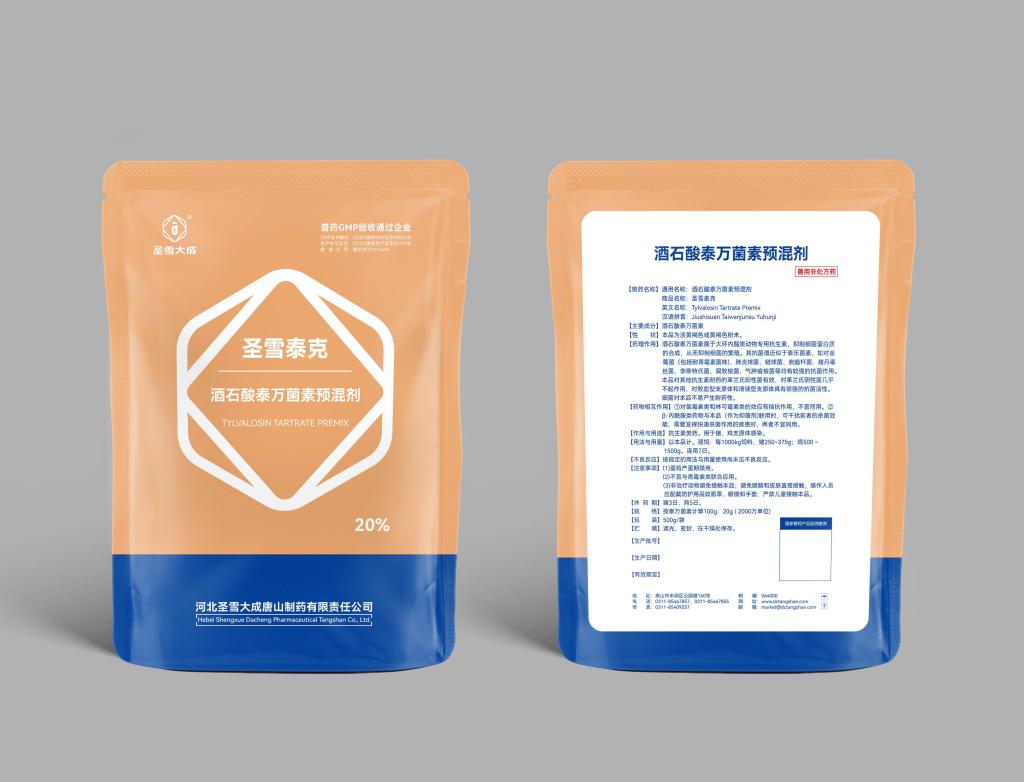Tel:+8618231198596

News
 CONTACT
CONTACT
 CONTACT
CONTACT
- Linkman:Linda Yao
- Tel: +8618231198596
- Email:linda.yao@dcpharma.cn
- Linkman:CHARLES.WANG
- Department:Overseas
- Tel: 0086 0311-85537378 0086 0311-85539701
News
The safety profile of tylvalosin tartrate premix is backed by extensive scientific studies.
TIME:2024-08-23
Understanding Tylvalosin Tartrate
Tylvalosin tartrate is a semisynthetic macrolide antibiotic derived from tylosin. It is commonly used in veterinary medicine for the prevention and treatment of bacterial infections. Its use as a premix in animal feed offers a convenient method for administering the antibiotic to livestock, ensuring consistent dosage and distribution.
Safety Profile
The safety profile of tylvalosin tartrate premix has been thoroughly investigated through numerous scientific studies. These studies have addressed various aspects of its use, including:
Toxicology: Toxicological studies have evaluated the potential adverse effects of tylvalosin tartrate at different dosage levels. These studies typically include acute toxicity, subchronic toxicity, and chronic toxicity tests. The results have consistently shown that tylvalosin tartrate is well-tolerated by animals at therapeutic doses.
Residue Kinetics: Residue studies have examined the pharmacokinetics of tylvalosin tartrate in various species. These studies help determine withdrawal times to ensure that meat and other animal products are free from antibiotic residues before they enter the food chain. Tylvalosin tartrate has demonstrated rapid clearance from tissues, minimizing the risk of residue accumulation.
Bacterial Resistance: Concerns over the development of antibiotic resistance are a critical consideration in the use of any antibiotic. Research has shown that the use of tylvalosin tartrate does not significantly contribute to the development of cross-resistance with other antibiotics, making it a safer choice compared to alternatives.
Environmental Impact: Environmental studies have assessed the potential impact of tylvalosin tartrate on soil, water, and wildlife. Findings suggest that the environmental impact is minimal when used according to recommended guidelines.
Human Health Considerations: Human health concerns, such as the potential for allergic reactions and the transfer of antibiotic-resistant bacteria from animals to humans, have been carefully considered. The data indicate that the risks associated with tylvalosin tartrate are low when used responsibly.
Regulatory Compliance
The safety profile of tylvalosin tartrate premix is not only supported by scientific evidence but also adheres to strict regulatory standards. Regulatory agencies around the world, such as the U.S. Food and Drug Administration (FDA) and the European Medicines Agency (EMA), require comprehensive safety data before approving the use of any veterinary drug.
Conclusion
The safety profile of tylvalosin tartrate premix is backed by extensive scientific studies that demonstrate its safe use in animal nutrition. From toxicology and residue kinetics to environmental impact and human health considerations, the research consistently supports the responsible use of tylvalosin tartrate in animal feed. As the demand for high-quality animal products grows, ensuring the safety and efficacy of feed additives like tylvalosin tartrate remains a priority for the industry.
- Tel:+8618231198596
- Whatsapp:18231198596
- Chat With Skype







